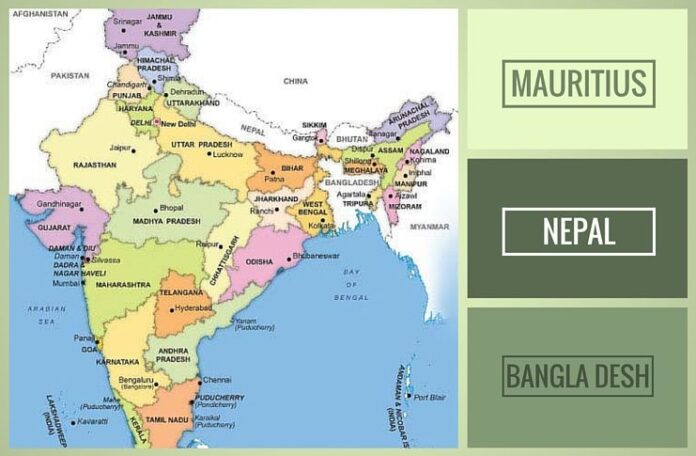
Kolkata, Nov 22
[dropcap color=”#008040″ boxed=”yes” boxed_radius=”8px” class=”” id=””]S[/dropcap]etting up a planetarium in Mauritius, strengthening basic science education in Nepal and upgrading Bangladesh’s science museum are on the agenda of India’s National Council of Science Museums (NCSM) in the coming months to help the neighbours communicate science effectively to their people.
This apart, the Kolkata-headquartered NCSM, which functions as a society under the union ministry of culture, is launching a “big project” in online science communication and grooming science teachers in the country.
“Since we have the expertise in designing and running science centres across India, we will provide the necessary know-how, scientific inputs, equipment and exhibitions to our neighbours to strengthen their science communication as part of our cultural relations exchange, NCSM director general G.S. Rautela told IANS in an interview here.
[dropcap color=”#008040″ boxed=”yes” boxed_radius=”8px” class=”” id=””]T[/dropcap]he Rajiv Gandhi Science Centre (RGSC) in Mauritius was set up by the UPA government in 2004 and now as part of its second phase of upgradation and expansion, a planetarium, possibly the island nation’s first, is being established.
“We are adding a planetarium and new exhibition halls. We have to look for local needs. For example, Mauritius being very close to sea, we would like to do an exhibition on ocean science. They also want an exhibition on space and astronomy because the planetarium is coming up,” explained Rautela about the specifics.
India provided the exhibits for the RGSC at an approximate cost of Rs.5 crore ($756,000). India also helped in the physical installation of these exhibits and in training the technical staff (curators) who would be manning and maintaining these exhibits.
[dropcap color=”#008040″ boxed=”yes” boxed_radius=”8px” class=”” id=””]F[/dropcap]or the second phase, which includes the planetarium and upgradation work, India will provide Rs.10 crore, said Rautela. For the Himalayan nation of Nepal, the impetus is on improving science education.
“We also have a proposal to do a science centre in Nepal. Their basic need is to improve their science education and so the name of the centre is science learning centre. We want to give them basic sciences which will help children to learn the fundamentals,” Rautela said.
India is investing Rs.5 crore for the project and so far, the conceptualisation and design, everything has been done, said Rautela, adding though it was delayed a bit, the project is “live” and construction will start “shortly”.
[dropcap color=”#008040″ boxed=”yes” boxed_radius=”8px” class=”” id=””]T[/dropcap]he director general is travelling to Bangladesh early next month to “finalise” details of the country’s requirements. “We will see what their needs are, make a scheme and then deliver it. We will be making exhibits and upgrading their science museum,” he informed.
Back in India, NCSM is branching out from its physical science centres to virtual ones for wider reach.
“Currently there are 48 centres and we are adding 21. But now, we are also developing virtual experiences. Lots of people can’t come to science centres. So we will provide an experience online via a special portal. This will include virtual exhibitions. It will be launched in a couple of months,” Rautela said.
Additionally, the NCSM will also nurture science teachers in schools.
“We are taking up a big programme to make science education interesting by nurturing science teachers in schools under the Rashtriya Avishkar Yojana (launched by the Narendra Modi government this year). They will be groomed through workshops and courses at the science centres across India so that science education can be transacted with a hands-on approach and with experiments,” Rautela said.
(IANS)
- Prime Minister Narendra Modi: A Gujju businessman who does not invest his precious time for a losing battle - April 13, 2024
- NIA arrests two accused Shazib and Taahaa in Bengaluru’s Rameshwaram Cafe blast case from Kolkata - April 12, 2024
- National Herald scam: Adjudicating Authority upholds Rs.752 crore assets attached by ED - April 11, 2024







